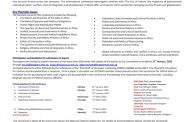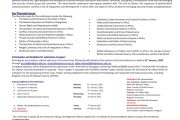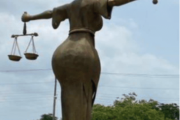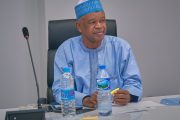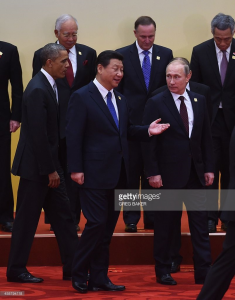Nigeria and South Africa have commenced putting recent ugly past behind themselves as detailed below so far by Johannesburg based online newspaper, the Daily Maverick. The report is republished unedited. It goes as follows:
The two countries’ foreign ministers have agreed on ‘concrete measures’ to avoid a repeat of recent xenophobic violence in SA and reprisals in Nigeria. The two countries’ foreign ministers have agreed on ‘concrete measures’ to avoid a repeat of recent xenophobic violence in SA and reprisals in Nigeria.
Nigeria and South Africa have patched up their major fallout over recent xenophobic violence against Nigerians in this country and have agreed on a range of steps to avoid a repetition and to increase co-operation between the two countries.
The two governments kissed and made up at a meeting of the Binational Commission at ministerial level in Pretoria on Wednesday, 2 October 2019. International Relations and Co-operation Minister Naledi Pandor and her Nigerian counterpart Geoffrey Onyeama have now set the scene for a friendly meeting between their presidents on Thursday 3 October.
Nigerian President Muhammadu Buhari was due to arrive in South Africa late on Wednesday in time for a state visit on Thursday during which he will meet President Cyril Ramaphosa for official talks and co-chair with him the presidential-level meeting of the Binational Commission.
The commission has not met since 2012, a sign of the long-strained relations between the two giants of Africa. Relations have been harmed by periodic bouts of xenophobic violence in South Africa, by retaliatory attacks by Nigerian mobs against South African businesses in Nigeria, as well as official measures taken by the Abuja government against those businesses, which Pretoria regards as sometimes punitive.

Buhari and Ramaphosa will take it up from what their foreign ministers have prepared
At their meeting on Wednesday, Pandor and Onyeama both apologised for the attacks against each other’s nationals and interests in recent weeks and agreed on steps to try to avoid repetitions.
Onyeama said the relations between the two countries had faced challenges. “But we like to think of these as challenges members of a family have to deal with. We appreciate the steps you have taken, personally reaching out to me, expressing regret. And your president sending a special envoy to meet our president and again expressing sincere regret at what happened.
“And we’re delighted that the two parties have agreed to work together to ensure that this never happens again. And we do look forward to taking concrete measures to ensure we don’t see a repeat of this.”
Neither minister elaborated on what these concrete measures would be. “My president has also expressed his profound regrets at some of the retaliatory actions which were taken in Nigeria which the law-enforcement agencies were very quick to douse and to address.
“We are determined to work very closely to develop even further the relationship between our two countries.”
Pandor also noted that Ramaphosa and the government had apologised for the attacks on Nigerians and thanked Onyeama for his openness in helping South Africa deal with the problem and also for the actions his government took to protect South Africa’s High Commission and consulate, and South African businesses when these had been attacked.
Onyeama said the relationship between the two countries was special. That was why the two countries had decided to elevate the Binational Commission to the level of the countries’ presidents. This was the only such commission which Nigeria had at presidential level.
He said the two countries should be engines of growth in Africa, co-operating in the fields of politics, economics and culture “to help achieve an Africa that we want”. The African Continental Free Trade Area, which both countries signed, but which has not yet come into operation, “should transform this continent with our two countries really front and centre of implementing it”.
He also stressed the co-operation between South Africa and Nigeria in defence, noting that the big challenge which Nigeria faced was global terrorism.
“We are happy to see the strong support we are receiving from South Africa.”
He said Nigeria also looked forward to building on the co-operation with South Africa in the areas of governance and democracy-building.
Onyeama said the two countries were bound closely together, including through the major South African companies doing business in Nigeria “and making a major contribution to our country”.
And in South Africa, he said, there were many Nigerians doing “so much for this country, in its hospitals and schools in particular”.
Onyeama noted that the African Union had set 2020 as the deadline for “Silencing the Guns” for ending wars and bringing peace to Africa. He said South Africa and Nigeria had worked hard together to establish the AU’s African Standby Force which is tasked with intervening militarily to douse conflicts.
The two countries had also worked hard to build the architecture for trade and travel across the continent. He said only 12% of African trade was conducted between African countries.
“As the two largest economies we can transform this, change this dynamic. It’s our shared responsibility to bring this about.”




